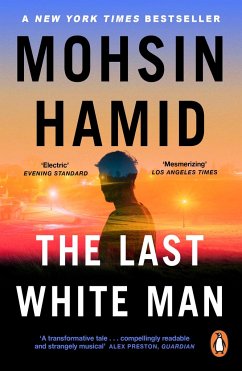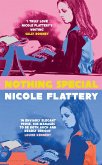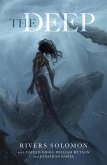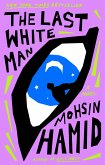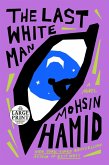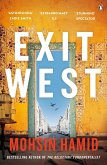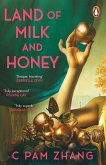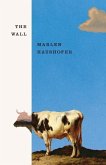From the twice Booker-shortlisted author of The Reluctant Fundamentalist and Exit West, a story of love, loss, and rediscovery in a time of unsettling change One morning, Anders wakes to find that his skin has turned dark, his reflection a stranger to him. At first he tells only Oona, an old friend, newly a lover. Soon, reports of similar occurrences surface across the land. Some see in the transformations the long-dreaded overturning of an established order, to be resisted to a bitter end. In many, like Anders's father and Oona's mother, a sense of profound loss wars with profound love. As the bond between Anders and Oona deepens, change takes on a different shading: a chance to see one another, face to face, anew. 'A transformative tale . . . compellingly readable and strangely musical' Guardian 'With this big-hearted novel of ideas, Mohsin Hamid confronts challenging truths with insight, wisdom, and - above all else - limitless compassion' Tayari Jones, An American Marriage
Hinweis: Dieser Artikel kann nur an eine deutsche Lieferadresse ausgeliefert werden.
Hinweis: Dieser Artikel kann nur an eine deutsche Lieferadresse ausgeliefert werden.
Advance praise for The Last White Man:
Searing, exhilarating. . . . reimagines Kafka s iconic The Metamorphosis for our racially charged era. Hamid brings a restless, relentless brilliance to his characters journeys and the revelations, public and private, that inform us all. Gorgeously crafted, morally authoritative, The Last White Man concludes on a note of hope, a door jarred open just enough to let transcendence pour through. Oprah Daily
[A] tale of poignant magical realism. . . . Haunting and arresting in equal measure. Elle
An emotionally gut-punching exploration of race, privilege, grief, and white anxiety. Mother Jones
A brilliantly realized allegory of racial transformation. . . . Hamid s story is poignant and pointed, speaking to a more equitable future in which widespread change, though confusing and dislocating in the moment, can serve to erase the divisions of old as they fade away with the passing years. A provocative tale that raises questions of racial and social justice at every turn. Kirkus (starred review)
With one remarkable book after another, Mohsin Hamid has proven himself to be one of the 21st century's most essential writers. This is, perhaps, his most remarkable work yet. THE LAST WHITE MAN is myth and poetry operating as a deeper form of social commentary, and an extraordinary vision of human possibility. Ayad Akhtar, author of Homeland Elegies
Praise for Mohsin Hamid:
Hamid s enticing strategy is to foreground the humanity. . . . [He] exploits fiction s capacity to elicit empathy and identification to imagine a better world. The New York Times Book Review
Lyrical and urgent . . . peels away the dross of bigotry to expose the beauty of our common humanity. O, the Oprah Magazine
Moving, audacious, and indelibly human. Entertainment Weekly
Feels immediately canonical, so firm and unerring is Hamid s understanding of our time and its most pressing questions. The New Yorker
Searing, exhilarating. . . . reimagines Kafka s iconic The Metamorphosis for our racially charged era. Hamid brings a restless, relentless brilliance to his characters journeys and the revelations, public and private, that inform us all. Gorgeously crafted, morally authoritative, The Last White Man concludes on a note of hope, a door jarred open just enough to let transcendence pour through. Oprah Daily
[A] tale of poignant magical realism. . . . Haunting and arresting in equal measure. Elle
An emotionally gut-punching exploration of race, privilege, grief, and white anxiety. Mother Jones
A brilliantly realized allegory of racial transformation. . . . Hamid s story is poignant and pointed, speaking to a more equitable future in which widespread change, though confusing and dislocating in the moment, can serve to erase the divisions of old as they fade away with the passing years. A provocative tale that raises questions of racial and social justice at every turn. Kirkus (starred review)
With one remarkable book after another, Mohsin Hamid has proven himself to be one of the 21st century's most essential writers. This is, perhaps, his most remarkable work yet. THE LAST WHITE MAN is myth and poetry operating as a deeper form of social commentary, and an extraordinary vision of human possibility. Ayad Akhtar, author of Homeland Elegies
Praise for Mohsin Hamid:
Hamid s enticing strategy is to foreground the humanity. . . . [He] exploits fiction s capacity to elicit empathy and identification to imagine a better world. The New York Times Book Review
Lyrical and urgent . . . peels away the dross of bigotry to expose the beauty of our common humanity. O, the Oprah Magazine
Moving, audacious, and indelibly human. Entertainment Weekly
Feels immediately canonical, so firm and unerring is Hamid s understanding of our time and its most pressing questions. The New Yorker

